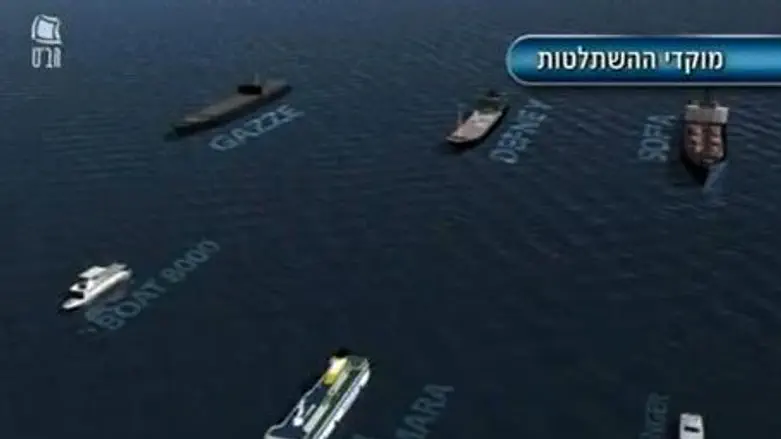
The BBC has won rare praise for a recent presentation on the late May flotilla clash off the coast of Gaza. The report was labeled “clear” and “fair” by the UK Zionist Federation and other groups that normally consider the BBC to be heavily biased against Israel and unwilling to bring Israel's point of view.
The Panorama broadcast focused on the clash between IDF commandos and Turkish terrorists aboard the Mavi Marmara, which was part of a larger flotilla of ships heading to Gaza with the goal of breaking Israel's naval blockade of Hamas.
In the report, presenter Jane Corbin gives Israeli soldiers and officials a chance to tell their side of the story. She shows the Israeli commander calling for the ship to surrender peacefully as the others did and offering to bring the aid by land, with the response heard from the ship being "Go back to Auschwitz" and "remember 9/11".
Corbin interviews young IDF naval commandos who boarded the flotilla ships and describe coming under vicious, unexpected ambush, and speaks to General (res.) Giora Eiland, who explains that violence on the ship was minimal considering the situation.
Corbin also notes that Turkey supports Hamas, and that most of the “aid” aboard the Mavi Marmara was limited to useless expired medications.
She interviews members of Hamas and of the “humanitarian” group IHH, the pro-terror organization which sent dozens of activists to Gaza on the Mavi Marmara, showing their leader calling for the act of "throwing Israelis into the sea" as an example of "passive resistance".
Eiland told Corbin that those aboard the Mavi Marmara were prepared to kill or to be killed. “Unfortunately, they managed to achieve exactly what they wanted,” he said, “to create a provocation that they would be able t o show that the Israelis caused the death of nine 'civilians,' so Israel is using excessive force, and Israel is guilty of everything.”
“Unfortunately it was quite successful,” he added.
As her investigation came to an end, Corbin concluded, “At the end of the day, the bid to break the naval blockade wasn't really about bringing aid to Gaza. It was a political move designed to put pressure on Israel and the international community.”
The video clip ends with an interview with a senior IHH member, who says his organization will continue in its efforts to break Israel's naval blockade, and with footage of naval commandos off the Gaza coast, prepared to continue enforcing the blockade. “The battle of the Med isn't over yet,” Corbin says.
The BBC program, part 1 and part 2, can be seen at http://www.youtube.com/watch?v=SXrzF0IOQYE&feature=related.